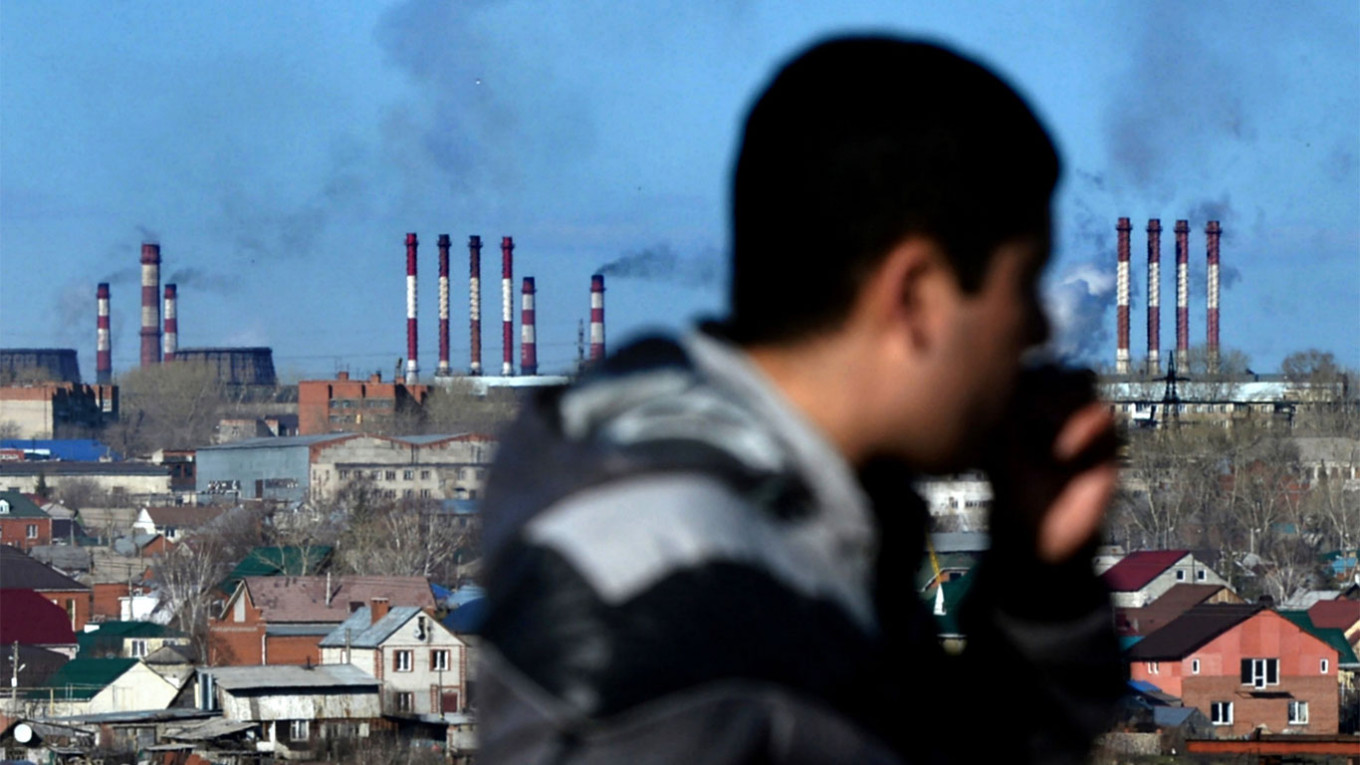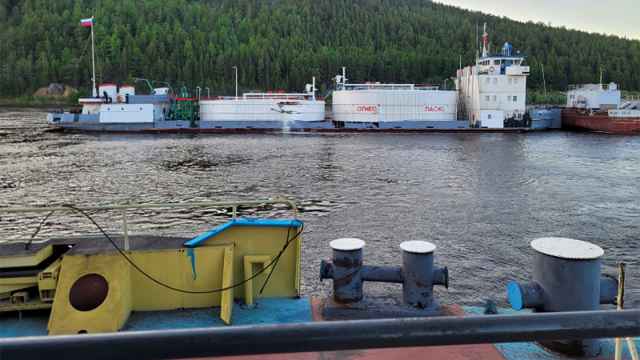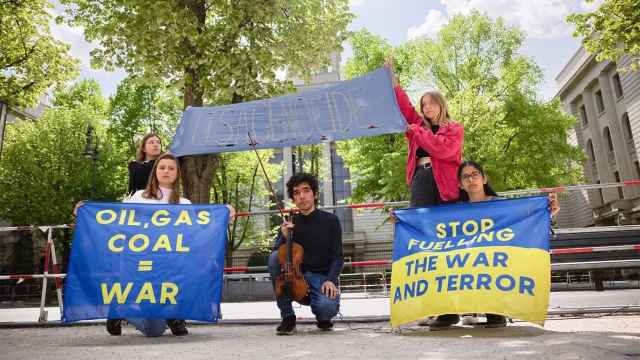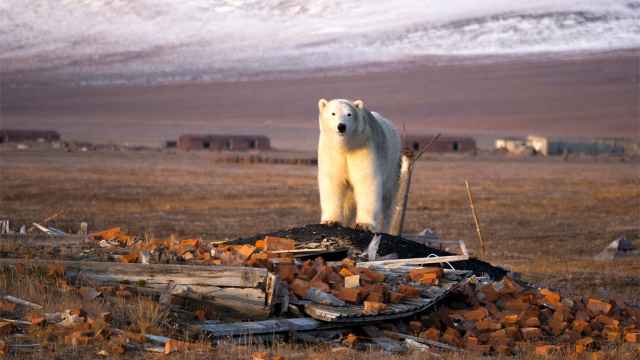Activists from several Russian regions have called on the government to explain its move to raise limits for the concentrations of harmful pollutants in the air.
A number of Russian cities have long been plagued with air pollution problems, particularly industrial cities such as Chelyabinsk, Magnitogorsk, Norilsk and Krasnoyarsk. They are among the 12 cities included in the federal "Clean Air” project, which aims to improve the quality of the air people breathe.
To regulate air quality, Russian law establishes norms for “maximum allowable concentration of hazardous substances”: the levels at which a pollutant can be in the environment with no negative consequences for the human body, even with prolonged exposure.
But a regulatory change made in early 2021 — and only discovered by activists in July 2023 — lifts these limits for substances such as ammonia, hydrogen fluoride, nitrogen dioxide, vinyl chloride and PM2.5 for no apparent reason.
In their joint appeal last month, which was first reported by the environmental news website Kedr.media, the activists asked Russian regulators to explain why concentrations of these substances which were considered dangerous before Jan. 28, 2021, “became safe for humans from March 1, 2021,” at the authorization of Russia’s Chief Health Officer.
The groups’ letter is addressed to the Chief Health Officer, the Health and Natural Resources Ministries, the Rosprirodnadzor environmental watchdog and applicable parliamentary committees.
Ivan Kharlamov, an activist from the breathe.moscow community, one of the groups that signed the letter, told The Moscow Times that the activists aim to “at least force authorities to explain why they make certain decisions that could create health risks for thousands of people. If they have to justify it, then perhaps they will think next time.”
The group consists of communities representing social advocates from Chelyabinsk, Tolyatti, Omsk, Moscow and the republic of Bashkortostan.
Veteran environmental expert Ivan Blokov, who was not involved in the activists’ initiative, said air pollution remains a very serious problem in all of these regions.
“In Bashkortostan, sometimes it is because of coal burning. In Chelyabinsk, there is an issue with unfavorable meteorological conditions, when air stagnates, but plants and cars spew out [pollutants]. As a result, smog appears, concentrations [of air pollutants] grow, and people start to feel resentment,” Blokov said.
The harmful effects of air pollution on human health have been widely documented. The UN Environment Program estimates that air pollution is responsible for 7 million premature deaths globally every year.
Blokov said raising upper limits for substances such as vinyl chloride would be “absolutely inadequate” given that it is a carcinogen. Meanwhile, PM2.5 is recognized as one of the most dangerous substances in the world.
In their letter, the activists pointed to documents published on the Chelyabinsk regional government’s website which show that authorities did not plan to include safety studies in their considerations for new air quality standards.
“Why did they increase the maximum allowed concentration of harmful substances? Did people become healthier and more resilient, or did businesses become bolder?” activists from Bashkortostan wrote on their Telegram channel.
In the joint letter, local air quality advocates said that the recent allowable levels of nitrogen dioxide and PM2.5 endorsed by the World Health Organization (WHO) were not taken as a basis for air quality standards in Russia, despite Rosprirodnadzor predicting excess mortality from PM2.5 exposure each year.
The activists also said Russia’s current norms for nitrogen dioxide levels are four times higher than WHO recommendations.
During the Soviet era, Blokov said, authorities were required to effectively defend a dissertation before they could change such regulations.
“It was a logical approach, more or less the same is now used [worldwide], at least for carcinogenic substances: significant research is needed,” he said. ”You can open WHO volumes and get all the information on why this or that limit was set. Unfortunately, the situation in Russia is not like that.”
Kharlamov from the breathe.moscow community pointed to the European Union’s practice of tightening, not loosening, regulations on the maximum allowable concentration of fine particles.
“They [EU bodies] referred to the WHO study, they also ordered their own economic study on how much it would cost for various industries, and what would be the benefits for health care if people get sick less and work more. Plus, there were public hearings, surveys of specialists,” he said. “And here [in Russia] they just say, ‘We have changed the norms, now they are like that.’ They don't take responsibility and don't really care about the consequences.”
Blokov slammed what he called the “disgraceful” approach of state consumer protection agency Rospotrebnadzor, which sets such regulations.
“The problem is not solved in any way, people are deprived of information about why this or that standard has been established. It is imperative to discuss such things, they [the authorities] should have submitted these changes for public discussion,” he said.
Activists also cited government data showing that almost 80 million people nationwide are negatively affected by environmental pollution, including air pollution.
Blokov stressed that he can only speculate on the potential reasons why the government is changing the regulations, but “one of the possible explanations” is the federal "Clean Air” project.
“The program in fact does not lead to real improvements in air quality,” Blokov said. “But such improvements may occur if you relax the limits for hazardous substance maximum allowable concentrations. Then one can show that the air quality in cities has 'gotten better'.”
He said that when formaldehyde limits were changed several years ago, not even the presidential human rights council succeeded in obtaining an official justification.
Therefore, Blokov said he can only wish “good luck” to the activists.
A Message from The Moscow Times:
Dear readers,
We are facing unprecedented challenges. Russia's Prosecutor General's Office has designated The Moscow Times as an "undesirable" organization, criminalizing our work and putting our staff at risk of prosecution. This follows our earlier unjust labeling as a "foreign agent."
These actions are direct attempts to silence independent journalism in Russia. The authorities claim our work "discredits the decisions of the Russian leadership." We see things differently: we strive to provide accurate, unbiased reporting on Russia.
We, the journalists of The Moscow Times, refuse to be silenced. But to continue our work, we need your help.
Your support, no matter how small, makes a world of difference. If you can, please support us monthly starting from just $2. It's quick to set up, and every contribution makes a significant impact.
By supporting The Moscow Times, you're defending open, independent journalism in the face of repression. Thank you for standing with us.
Remind me later.






